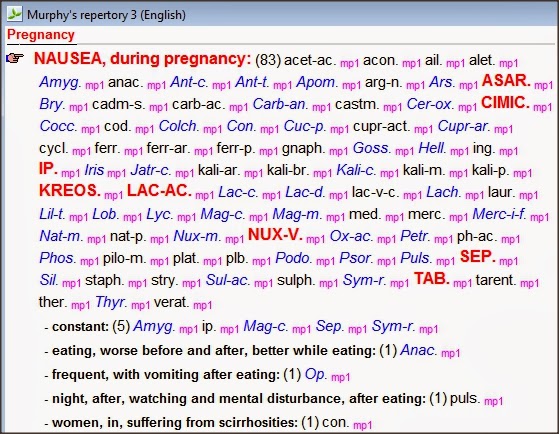It is a feeling of nausea or even vomiting which
occurs at any time
of the day in the first 3 months of pregnancy
and very occasionally persists
right into late pregnancy. The cause is the hormonal changes that take place during pregnancy. It is better to eat
small quantities frequently.
Persistent, severe vomiting during pregnancy—hyperemesis gravidarum—can be disabling and require hospitalization. Thyroid dysfunction can be associated with hyperemesis gravidarum, so it is advisable to determine thyroid-stimulating hormone (TSH) and free thyroxine (T4) values in these patients.
Essentials of Diagnosis points are:
Essentials of Diagnosis points are:
- Morning or evening nausea and vomiting.
- Persistent vomiting severe enough to result in weight loss, dehydration, starvation ketosis, hypochloremic alkalosis, hypokalemia.
- May have transient elevation of liver enzymes.
- Appears related to high or rising serum hCG.
- More common with multiple gestation or hydatidiform mole.
Morning sickness, also called nausea gravidarum, nausea, vomiting of pregnancy (emesis gravidarum or NVP), or pregnancy sickness
Thalidomide
( the allopathic drug) was originally developed and prescribed as a cure for morning sickness in West
Germany, but its use was discontinued when it was found to cause birth defects.
Mild Nausea and Vomiting of Pregnancy
Reassurance and dietary advice are all that is required in most instances. Because of possible teratogenicity, drugs used during the first half of pregnancy should be restricted to those of major importance to life and health. Antiemetics, antihistamines, and antispasmodics are generally unnecessary to treat nausea of pregnancy
The
nausea can be mild or induce actual vomiting, however, not severe enough to
cause metabolic derangement. In more severe cases, vomiting may cause dehydration,
weight loss, alkalosis and hypokalemia. This condition is known as hyperemesis
gravidarum and occurs in about 1% of all pregnancies.




No comments:
Post a Comment